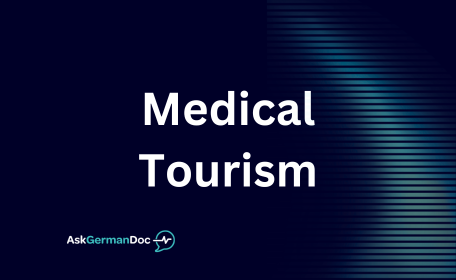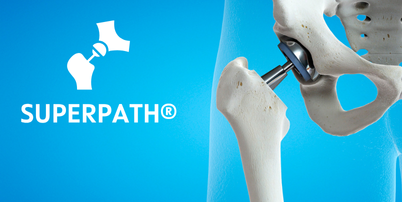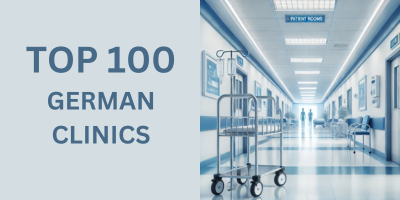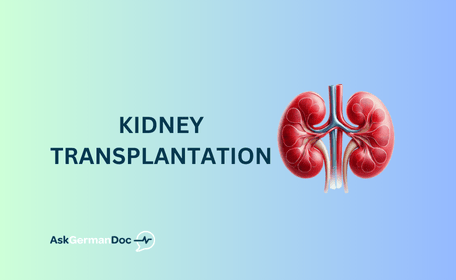Medical tourism is becoming an increasingly attractive option for patients seeking faster, better, or more affordable healthcare. Every year, thousands of people travel abroad for diagnostics, advanced surgeries, cancer therapies, fertility treatment, rehabilitation, or preventive care. The motivation behind this trend includes long waiting times at home, lack of access to modern medical technology, or simply the desire for a second opinion from a top international expert.
Germany, South Korea, Israel, and Switzerland are among the most sought-after destinations — known for their high medical standards, innovation, and personalized approach.
What Is Medical Tourism?
Medical tourism refers to traveling to another country for medical treatment. The reasons vary:
- High cost of treatment in the patient’s home country
- Long waiting lists for surgery or diagnostics
- Lack of access to advanced technology or specialized care
- Desire for more personalized or discreet medical services
Germany, for example, combines state-of-the-art technology with compassionate care and evidence-based protocols — making it one of the top choices for international patients.
The Leading Fields in Medical Tourism
Medical travel spans a wide range of specialties. Below are the most in-demand categories:
Diagnostics and Preventive Medicine
Early and accurate diagnosis is the foundation of effective treatment. Many patients travel abroad to undergo:
- Comprehensive medical check-ups (Full-body scans, blood panels)
- High-resolution MRI, PET-CT, and CT imaging
- Genetic testing and risk assessments
Plastic and Reconstructive Surgery
Procedures like rhinoplasty, facelifts, liposuction, and breast augmentation are major drivers of medical tourism. Patients seek:
- Better aesthetic results
- Stricter safety protocols
- Discreet recovery settings
Fertility Treatment and Gynecology
Reproductive medicine is highly specialized. International patients turn to foreign clinics for:
- IVF (In vitro fertilization)
- Pre-implantation genetic testing (PGT)
- Treatment of endometriosis and PCOS
Neurosurgery and Spine Treatment
Brain and spinal surgeries require maximum precision. International patients benefit from:
- Robotic-assisted brain tumor removal
- Epilepsy surgery and vascular malformations
- Minimally invasive spine stabilization
Cardiac Surgery and Cardiology
Heart patients seek:
- Bypass surgery
- Pacemaker or ICD implantation
- Valve repair or replacement
Orthopedics and Joint Replacement
Joint surgery is one of the most common reasons for medical travel. Treatments include:
- Hip and knee replacements
- Spinal fusion or scoliosis correction
- Arthroscopy and cartilage repair
Oncology
Cancer patients turn to German clinics for:
- Targeted therapy and immunotherapy
- Proton beam therapy
- Genomic profiling of tumors
Geriatric and Rehabilitation Services
Older patients benefit from:
- Comprehensive age-related disease management
- Recovery from strokes or fractures
- Tailored nutrition and physical therapy plans
Cost Comparison
Prices vary based on location and procedure complexity. For example, here’s the estimated cost of knee replacement surgery:
| Country | Estimated Cost (EUR) | Notes |
|---|---|---|
| Germany | €15,000 – €25,000 | Accurate diagnostics, full rehab included |
| Israel | €20,000 – €30,000 | Fast treatment start |
| India | €6,000 – €10,000 | Lower cost, limited insurance coverage |
| South Korea | €12,000 – €20,000 | High-tech, efficient procedures |
| USA | €30,000 – €50,000 | Premium care, high insurance dependency |
Germany provides an optimal balance of affordability, innovation, and transparency.
The Role of Second Opinions in Medical Tourism
Getting a second opinion before undergoing treatment abroad is crucial — especially for complex diagnoses. At AskGermanDoc, top German doctors analyze medical documents and imaging independently and provide clear recommendations.
Benefits include:
- Validating or correcting the initial diagnosis
- Exploring modern or less invasive options
- Avoiding unnecessary procedures
This process gives patients confidence, clarity, and a safer healthcare journey.
Legal and Ethical Considerations
Before seeking treatment abroad, patients should consider:
- Accreditation and licensing of the clinic
- Insurance coverage across borders
- Informed consent and legal liability
AskGermanDoc supports patients in understanding these factors and helps coordinate their journey securely.
Conclusion
Medical tourism opens the door to faster, safer, and more advanced treatment — often at a better price. Countries like Germany lead the way with modern clinics, experienced specialists, and comprehensive aftercare. Platforms like AskGermanDoc enable patients to receive trusted guidance, second opinions, and access to Germany’s medical experts — all without the burden of guesswork or language barriers.
Disclaimer: This article is for informational purposes only and does not constitute medical advice. Always consult a licensed physician before making treatment decisions. AskGermanDoc provides second medical opinions and medical coordination but does not offer direct medical treatment.
Sources:




